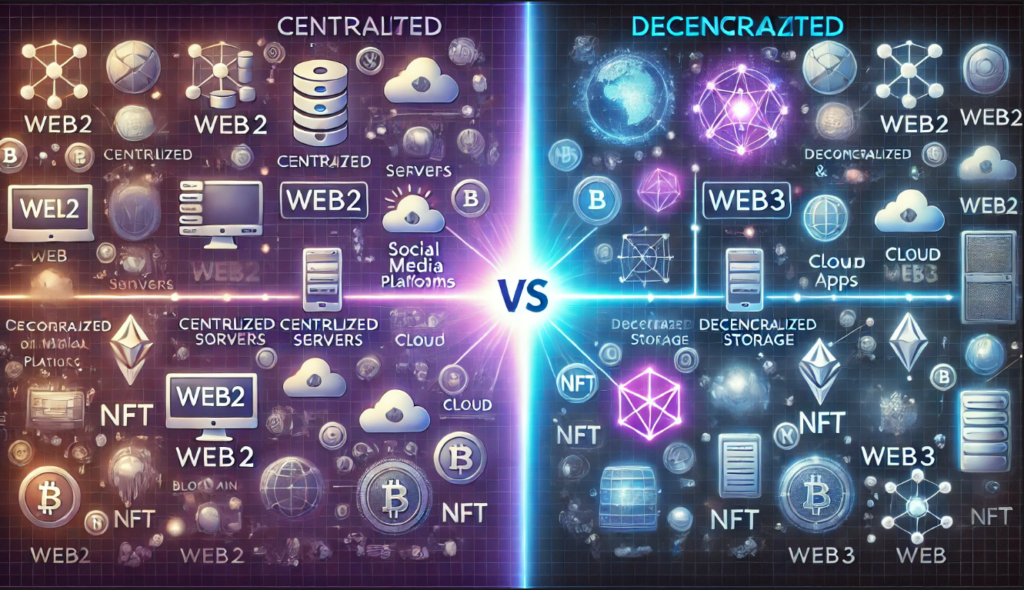How to Begin Your Web3 Development Career
Web3, the decentralized web powered by blockchain technology, is rapidly changing how we interact with the internet. As industries increasingly adopt Web3 technologies, opportunities for developers are exploding. If you’re looking to start a Web3 development career, here’s a comprehensive guide to set you on the right path.
Understand the Fundamentals of Web3
Before getting into development, one needs to understand what Web3 is and the differences between Web2.
- Decentralization: With data stored on centralized servers in Web2, Web3 uses blockchain-a decentralized network of nodes.
- Ownership and Tokenomics: Users own data and assets through cryptographic wallets and interact with the network through tokens.
- Smart Contracts: Decentralized applications, or dApps, operate using self-executing contracts, stored on the blockchain.
Familiarize yourself with concepts like blockchain, cryptocurrencies, NFTs, and DeFi as a base.

Learn the Basics of Blockchain
Blockchain is the basis of Web3, so understand how it works first:
- Consensus Mechanisms: Learn about Proof of Work (PoW), Proof of Stake (PoS), and newer protocols like Proof of Authority (PoA).
- Popular Blockchains: Look at Ethereum, Binance Smart Chain, Solana, and Polygon. Start with Ethereum since it is one of the most widely adopted.
- Key Terms: Familiarize yourself with wallets, nodes, mining, gas fees, and EVM (Ethereum Virtual Machine).
Acquire Crucial Programming Skills
Web3 development requires a combination of classical and blockchain-specific programming skills:
Languages:
- Solidity: The language for writing smart contracts on Ethereum.
- Rust: Used in blockchains like Solana and Near.
- JavaScript/TypeScript: Required to created App frontends.
Frameworks and Tools:
- Hardhat/Truffle: To develop Ethereum smart contracts.
- Web3.js/Ethers.js: For interaction with blockchain via JavaScript.
- IPFS (InterPlanetary File System): For decentralized storage.
Construct Practical Projects
Web3 developers require hands-on practice. Begin with simple projects and work your way through the complexity of the project by using:
Simple Projects:
- Construct and deploy a basic token (like ERC-20 or BEP-20).
- Develop a simple voting system or lottery contract.
Intermediate Projects:
- Construct a decentralized exchange (DEX).
- Develop a DAO (Decentralized Autonomous Organization).
Advanced Projects:
- Create a multi-chain wallet.
- Develop an NFT marketplace.
Deploy your projects on testnets like Rinkeby or Polygon Mumbai to get real-world experience without spending real tokens.
Keep Up with the Ecosystem
The Web3 space evolves fast, and new tools, blockchains, and protocols are emerging regularly. Keep learning by:
- Following Developers: Engage with blockchain communities on Twitter, Discord, and Reddit.
- Attend Hackathons: Join events organized by companies such as ETHGlobal and connect with other developers as well as learn from them.
- Subscribe to Newsletters: Keep up with Bankless and CoinDesk newsletters.
Open Source Contributions
Open-source contributions are excellent ways to gain visibility in the Web3 space, as well as experience.
- Go to GitHub and find a beginner-friendly repository that involves blockchain and dApps.
- Try to fix bugs, improve documentation, or add new features to a project.
Join Web3 Communities
Web3 thrives on collaboration and communities are a great place to learn, share, and grow:
- Ethereum Stack Exchange: To solve development problems.
- Telegram and Discord Groups: Participate in blockchain-specific channels to be updated.
- Online Courses and Bootcamps: There are platforms like Alchemy University, ConsenSys Academy, and Dapp University that offer learning paths.
Prepare Your Portfolio
To showcase your skills and projects, create a professional portfolio with links to your GitHub repositories.
- Live demos of your Apps.
- Contributions to open-source projects.
Also, share your journey on LinkedIn or Twitter to attract potential collaborators and employers.
Stay Resilient and Keep Learning
The Web3 landscape is competitive and ever-changing. Challenges are inevitable, but persistence is key. Continue experimenting, learning, and growing your network.
Conclusion
Starting a career in Web3 development might seem daunting at first, but with the right mindset and consistent effort, you can carve out a successful path. Embrace the decentralized future, and you will be well-positioned to thrive in the blockchain revolution.
Happy coding and welcome to Web3! 🚀

